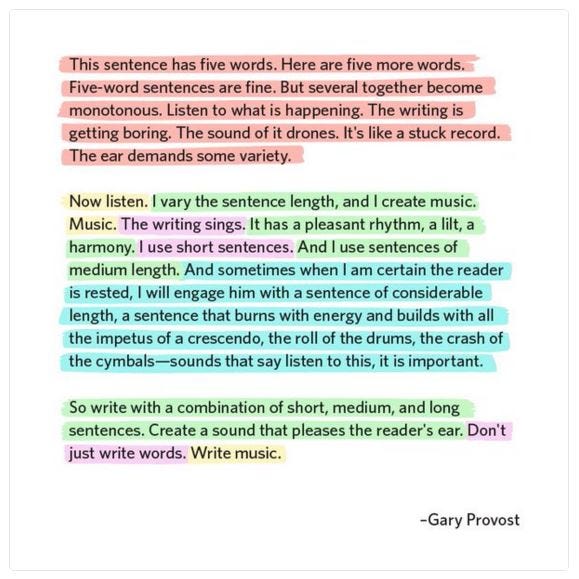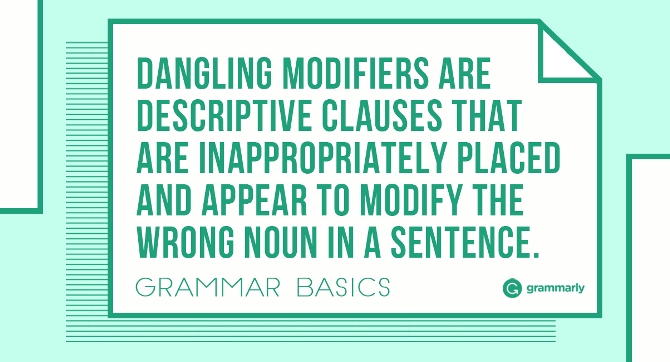
14 Tips That Will Improve the Quality of Your Writing
Freelance writing is an attractive vocation: You can work from anywhere, set your own hours, and have control over your projects, to a certain extent. If you’re a subject matter expert in one or more in-demand fields, you can focus your efforts there and build up an impressive body of work that can lead to even more lucrative assignments.
But if you don’t have a background in writing, you could be facing an uphill battle. Like any other industry, writing requires skill and aptitude.
Quality is more important than ever in the world of online writing. Gone are the days when websites could use a content spinner to turn out a revised version of someone else’s blog post. More clients are recognizing the value of hiring writers with proven credentials, relevant experience, and even English degrees. While it’s still possible to find lower-paying writing jobs that aren’t as concerned with quality, if you want to compete for the good assignments, you need to have a solid portfolio that displays an understanding of grammar and style.
In my years of working with freelance writers, I have seen many of them making the same mistakes — mistakes that separate the top-tier writers from those with less experience. If you want to be taken seriously as a professional writer, you should always be working to improve your craft.
Read the seminal works on writing style, such as The Elements of Style and On Writing Well. Take online writing classes geared toward topics such as SEO copywriting. Learn how to appeal to readers based on where they fall in the buyer’s journey. And make sure that your content is of the highest quality possible. The following tips will help you elevate the quality of your writing. Put them into practice, and you’ll be able to build an impressive portfolio that will allow you to aim for bigger and better writing jobs.
Caveat: You’ll always see some writers breaking these rules, but the best writers do so intentionally. Once you know and understand the rules, you can determine when and where it’s appropriate to break them.
1. Avoid starting a sentence with “there are,” “here are,” etc.
This is a boring and lazy way to start a sentence. Your verb is typically the most important word in the sentence, so why use “is” or “are” when you have so many options to choose from?
Poor writing: There are a few reasons why Jem and Scout were vulnerable to Mr. Ewell’s attack
Better: Jem and Scout were vulnerable to Mr. Ewell’s attack for several reasons.
Bonus points if you noticed that “why” is unnecessary in the first sentence. “Reasons” by itself is sufficient.
2. Don’t refer to your article within itself
Online content is not a term paper. You don’t need to tell us what you’re going to say, and then say it, and then recap it. Avoid the temptation to state, “this article will show you how …” etc. Just get to the point. Remember that people don’t read online content; they scan it. Don’t waste their time by repeating information unnecessarily. However, you can and typically should give them a reason to keep reading.
Poor writing: In this article, we will discuss several ways that you can become a better writer.
Better: Continue reading for 14 tips that will help you improve your writing — and that will ultimately allow you to charge more for your services.
3. Avoid using several short words in a row
A sentence full of several short words in succession can be difficult to read. To make your content flow, use a combination of shorter and longer words. See if you can replace several shorter words with longer, more precise words. For example, I’ve used “several” in this section instead of “a lot of.” If you’re getting paid by the word, it may be tempting to stuff your content with unnecessary words, but this can make your writing come across as amateur.
Poor writing: Take the time to check and make sure that your content is error-free.
Better: Review your content a final time to check for grammatical errors.
4. Vary your sentence length and structure
The general rule for content readability is that it should be written at a fifth-grade level. This leads some writers to produce content that is boring and stilted. For writing to flow, it should contain a combination of simple and complex sentences. You’ve likely seen the advice shown below, from writing instructor Gary Provost. Notice how varying sentence length and structure makes the writing come alive. Even sentence fragments can be employed if they make sense in the flow of the paragraph.

5. Avoid unnecessary filler content
This is another device often employed by writers looking to pad their word count. Unnecessary commentary such as “it’s true,” “needless to say,” or “as we’ve previously mentioned” is another example of bloated writing that slows down the flow of the content.
If something is truly “needless to say,” then why are you saying it? If you’re tempted to use these or similar expressions, ask yourself if they actually add anything to the sentence. If the answer is no, leave them out.
Poor writing: Needless to say, you want your writing to be of the utmost quality.
Better: Provide your clients with high-quality content, and they’ll come back for more.
6. Avoid clichés
Resist the temptation to let clichés sneak into your writing. They always come across as amateur. This includes common phrases such as “there’s nothing worse than” or “rest assured.” There’s little chance that people are actually losing sleep over whatever you’re writing about.
Poor writing: There’s nothing worse than not being able to fall asleep at night.
Better: Sleep deprivation can lead to stress, anxiety, a weakened immune system, difficulty concentrating, and other health problems.
7. Be specific
Specificity is always more impactful in writing. Avoid sweeping statements and broad generalizations that can’t be supported with studies or other documentation. Be specific, and always provide references for any statistics. This goes double if you’re doing medical writing.
Poor writing: People who take DNA tests lose more weight.
Better: People who follow a diet suited to their genetics can lose up to 287% more excess weight.
8. Don’t use “it” without a clear antecedent
“It” is a pronoun, which is a word that stands in for another word. I often see writers using “it” without a clear antecedent. Any time you use a pronoun, make it clear what that pronoun is referring to.
Poor writing: If you notice you’re gaining weight, you can do something about it before it gets too difficult.
It is used twice in this sentence to refer to two different things: the weight gain itself, and the process of losing weight.
Better: If you notice you’re gaining weight, you can start to change your diet and lifestyle habits before your weight gets out of control.
9. Avoid using “from … to” without a logical progression
I see a lot of writers using “from … to” as a way to express a wide variety of items. But often no logical relationship exists between the items listed. Using “from … to” implies a continuum, a progression in which one item is related to the next. You can’t just throw “from … to” into a random list of items and expect it to make sense. Even worse, I see writers using “to” several times in a progression, which just makes things sloppy.
Poor writing: From choosing the right footwear and using shoe inserts, to stretching, splints, steroids, and pain medications, these options can alleviate discomfort.
Better: Treatment options such as choosing the right footwear, using shoe inserts, stretching, and pain medications can help alleviate discomfort.
If you do use “from” and “to,” make sure the progression makes sense. For example, “We sell everything you need for school, from pens to laptops.” This progression makes sense because pens are at the low end of the price continuum, while laptops are at the higher end.
10. Pay attention to subject-verb agreement
Subject-verb agreement is a pretty straightforward concept most of the time. A singular subject takes a singular verb, and a plural subject takes a plural verb. But certain situations can trip up writers. Consider the following example:
Neither of the pies is/are gluten-free.
What is the correct verb in this sentence? If you said is, you’re correct. The subject is neither, which takes a singular verb. But most people see the plural word “pies” and think that it requires a plural verb.

11. Watch for dangling modifiers
Once you understand dangling modifiers, you will see them everywhere. A dangling modifier is a descriptive clause, usually appearing at the beginning of a sentence, that modifies the wrong noun. Consider this example from an article about audiobooks narrated by Game of Thrones actors:
“Released on April 4, Kit Harington and Johnny Flynn star as fighting brothers in this 1980 dark comedy by Sam Shepard.”
“Released on April 4” is a dangling modifier. What was released on April 4? Obviously, the writer is referring to the audiobook True West, but that’s not how the sentence is written. The sentence literally says that Kit Harington and Johnny Flynn were released on April 4.

12. Look up words you aren’t sure about
This may seem like a no-brainer, but I’ve seen plenty of writers use the wrong word. If you aren’t sure what a word means or aren’t sure if you’re using the right version of a homophone, take the time to look it up, or use a different word. You’ll come across as an amateur if you use “insure” when you should have written “ensure.”
13. Read your material out loud
Before sending your work off to a client, read it out loud. You’ll be more likely to notice places where the phrasing is awkward or the sentences are bogged down with unnecessary words.
14. Let it sit for 24 hours
Avoid doing all your writing work at the last minute. Aim to finish your writing assignments at least 24 hours before they’re due, and then give them another pass before you submit. After letting your articles sit for a while, you’ll likely notice different opportunities for improvement, which will allow you to make your work that much more polished before you send it off.
Looking for more advice on how to succeed as a freelance writer? Check out more tips for freelancers on our blog!
She is the Director of Content for a medical marketing agency, and is certified in inbound marketing, content marketing, email marketing, site structure, and keyword research.




